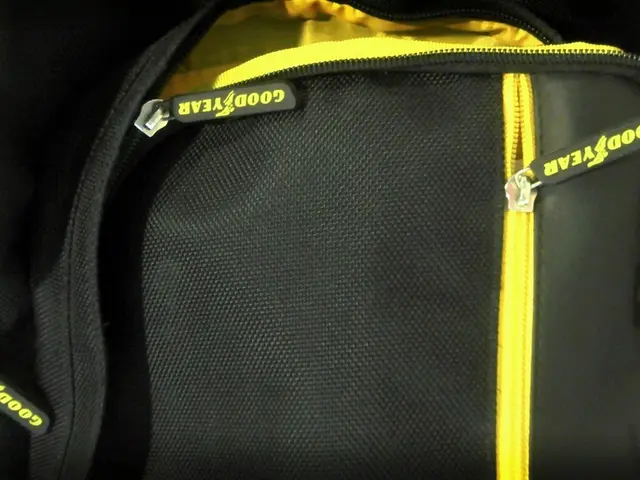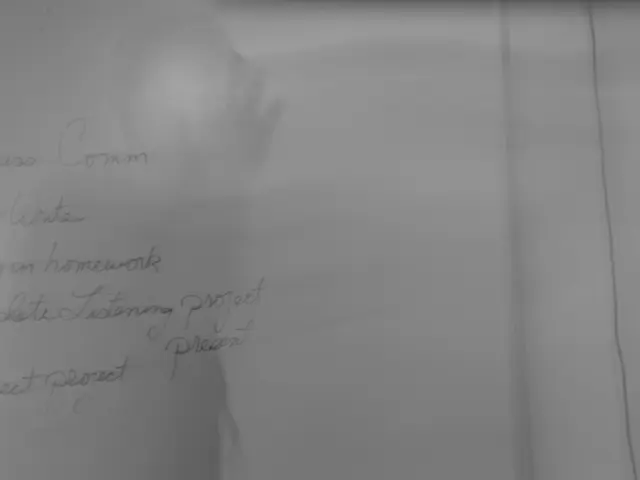L'Oreal's Transformation Journey: Evolution from International Behemoth to Agile, Eco-friendly, and Consumer-oriented Enterprise
In a Nutshell:
Cosmetics giant, L'Oréal, is undergoing a profound transformation in its supply chain, aiming to establish itself as a future-ready, consumer-centric, and sustainable industry leader. This dynamic shift is being driven by a series of strategic initiatives, from adopting AI for agile product development to upholding circularity and sustainability across the product lifecycle. A key focus on consumer-centric innovation ensures rapid responses to shifting preferences anddeepening connections withcustomers through innovative channels like WhatsApp.
The Tale of L'Oréal's Agile Revolution
Move over haute couture, because L'Oréal is weaving a new kind of magic behind the scenes. The beauty powerhouse, synonymous with glamorous launches and iconic brands, is quietly overhauling its operations to stay ahead in a fast-paced, eco-conscious world. And at the heart of this transformation is none other than Je´rôme Perlikowski, the Group Sourcing Director for Supply Chain and Manufacturing, who recently shed light on the company's multifaceted strategy.
Fueling Growth Through Adaptability
The size of L'Oréal's operations is colossal, with over 8 billion product units sold in 2024 alone. But growth doesn't hinge on scale—it's all about speed and innovation. "A third of our product portfolio is renewed every year," Perlikowski revealed, emphasizing the need for extreme agility across the supply chain. L'Oréal's approach: accelerating the integration of acquisitions, scaling them swiftly, and seamlessly merging them into its operations. A shining example? Yves Saint Laurent, acquired with sales of €200 million, now thriving under L'Oréal's umbrella as a €2 billion brand.
Manufacturing Magic: Global Standards, Local Ingenuity
A quick turnover and competitive pricing require a careful balance between cost-efficiency and agility. L'Oréal's solution? A "platformization" strategy, standardizing equipment across sites to allow for faster product launches, easier maintenance, and smarter investments. Despite owning the majority of its factories, the 36 facilities spread across 18 European and 11 French locations are strategically positioned close to various markets, granting L'Oréal a unique competitive edge.
Hybrid Automation: For a Limitless Palette
Automation is often a one-size-fits-all approach, but not for L'Oréal. With dozens of brands and diverse product lines, the company tailors its automation strategy based on factory type, product segment, and labor availability. Sometimes they fully robotize, other times they employ hybrid models featuring low or mid-level automation, all with the ultimate goal of achieving optimized efficiency. And as the race to minimize environmental impact continues, sustainability remains paramount. L'Oréal is rolling out eco-responsible factories, boasting reduced water and energy footprints, alongside formulas based on natural ingredients.
Distribution with a Personal Touch: The Dawn of Smart Fulfillment
Perhaps the most significant shift is happening in distribution and fulfillment. Riding the e-commerce wave, which now accounts for over 20% of L'Oréal's total revenue, they're launching Smart Fulfillment: a cutting-edge initiative that deploys robotics, automation, and real-time data to make distribution faster and more personalized, all while reacting to sudden spikes in demand from social media posts.
Refining Relationships: Supplier Collaboration
Embracing the idea of fostering long-term partnerships instead of mere transactional relationships, L'Oréal evaluates all its strategic partners using a five-pillar framework: Innovation, Sustainability, Competitiveness, Supply Chain Agility, and Governance. Key players like *Toyota Material Handling* are now co-developing agile logistics and automation models that align with L'Oréal's sustainability and performance goals. "We measure progress—because what you measure, you can improve," Perlikowski insists.
The Next Chapter: Conquering the Future with Tech and Sustainability
L'Oréal's ambition transcends merely keeping up with disruption; it seeks to lead it. By embedding the best of technology—AI, robotics, and data analytics—into every aspect of its value chain, all while being nimble enough to adapt to local markets and cautious in navigating environmental constraints, L'Oréal is poised to deliver a supply chain that's as intelligent as it is sustainable. A company that reinvent a third of its portfolio every year, building a responsive, intelligent, and sustainable supply chain could very well be its most significant innovation yet.
- L'Oréal, known for its fashion-and-beauty brands, is redefining its operations, aiming to be a future-ready, consumer-centric, and sustainable industry leader.
- Jérôme Perlikowski, the Group Sourcing Director for Supply Chain and Manufacturing at L'Oréal, reveals they renew a third of their product portfolio every year, requiring extreme agility across the supply chain.
- L'Oréal's manufacturing strategy involves standardizing equipment across sites for faster product launches, easier maintenance, and smarter investments, while strategically positioning its factories close to markets for a competitive edge.
- The company adopts hybrid automation strategies, tailoring automation based on factory type, product segment, and labor availability, all with the goal of achieving optimized efficiency and reducing environmental impact.
- Smart Fulfillment, a new initiative by L'Oréal, deploys robotics, automation, and real-time data to make distribution faster, more personalized, and capable of reacting to sudden spikes in demand from social media posts.
- L'Oréal, in pursuit of long-term partnerships, evaluates strategic partners using a five-pillar framework that includes Innovation, Sustainability, Competitiveness, Supply Chain Agility, and Governance.
- Key partners like Toyota Material Handling are co-developing agile logistics and automation models that align with L'Oréal's sustainability and performance goals.
- By integrating AI, robotics, and data analytics into every aspect of its value chain, L'Oréal aims to create an intelligent, responsive, and sustainable supply chain, setting itself up to lead, rather than just keep up with, disruption.
- With a focus on consumer-centric innovation, investments in technology, education-and-self-development, career-development, and skills-training, L'Oréal is preparing its workforce for the changing business landscape brought about by technological advancements and the importance of sustainability in lifestyle choices.







